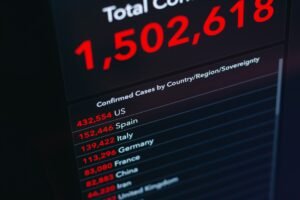In the ongoing saga of tariffs imposed by the Trump administration, customs announced an exception for smartphones and computers this weekend. Trump himself has since denied that. No one seems to know what the sector will face at this point.
Last week, the Trump administration released a list of various tariffs on 180 countries that he called “reciprocal.” After the stock market crash and geopolitical wrangling, these were primarily rolled back to a temporary “base tariff” of 10% on goods imported from most of the world and 125% on China.
On Friday evening, US Customs and Border Protection published a list of exemptions from the tariffs. The goods, including smartphones, laptops, processors, and memory chips, would not be subject to the 125% tariff for China and 10% for the rest of the world. However, they would still be subject to a 20% “fentanyl tariff” that was also imposed on goods from China sometime last week.
Building Fabs
The goods in question are generally not made in the United States, but they are essential to the tech industry there, among other things. For example, most of the world’s chips are built in Taiwan and China. It also takes years to build a chip factory, so if the US wants to take production into its own hands, it will need some time. This is likely what motivated the customs exemptions.
But nothing is specific, it turns out. Secretary of State for Commerce Howard Lutnick tells the American channel ABC News that the current exception is temporary and that the government is working on specific tariffs for the tech sector. That special tariff would also apply to smartphones like iPhones and other computer devices. Trump also reports on his social media platform Truth Social that his administration will look at the logistics chain of electronics for specific levies. These could then be lower than the 145% for other Chinese goods.








Be First to Comment